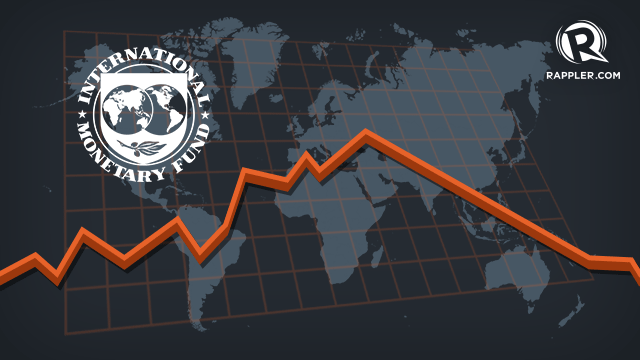SUMMARY
This is AI generated summarization, which may have errors. For context, always refer to the full article.

KIEV, Ukraine – The International Monetary Fund vowed on Tuesday, September 2 to stand by Ukraine despite the growing likelihood that a worsening pro-Russian uprising would cripple the economy so badly that its current $17.1-billion (13.0-billion-euro) rescue will prove too small.
The global lender said it was releasing the second $1.39-billion tranche of its lifeline despite “major uncertainties” and on the assumption that the ex-Soviet country’s Western allies would be ready to pitch in with extra assistance if asked.
“We are assuming that the conflict will begin to subside in the coming months,” the Fund’s European Department head Poul Thomsen said in his first review of Kiev’s compliance with its reform and recovery programme.
“But the balance of risks appear to be tilted to the downside. If this assumption does not hold… the programs’ viability could hinge on larger assistance from Ukraine’s international partners.”
The IMF said its worst-case scenario would see Ukraine requiring an additional $19 billion in funding by the end of 2015.
The boost comes as the war-torn country began receiving gas from the European Union via Slovakia on Tuesday, part of a deal brokered by Brussels to reduce Kiev’s energy dependence on Russia amid an escalating armed crisis.
Russia cut its gas deliveries to Ukraine in June after a pro-Western government took power, saying that Kiev had not been paying its bills on time.
Ukraine won the two-year standby facility from the IMP after a wave of deadly winter protests toppled the Russian-backed administration and saw Moscow pull the plug on aid it had hoped could keep Kiev permanently out of the European Union’s reach.
The IMF’s rescue formed the heart of a $27-billion package that Ukraine’s foreign allies vowed to deliver should the new leaders adopt the deeply unpopular but long-overdue measures to rein in outsized state spending and stamp out communist-era corruption and red tape.
But Ukraine’s problems — big enough to see the economy slip into recession in mid-2012 — have only mounted from persistent tensions with Moscow that have cut it off from Russian trade and required massive spending on a bloody battle against the pro-Kremlin uprising.
The fighting has ground vital steel mills and coal mines to a halt that had served as Ukraine’s economic engine for more than a century.
The nation of 45 million is now facing the prospect of spending the long winter without crucial Russian gas shipments and with unemployment running out of control.
Eastern industrial collapse
The IMF expects the economy to shrink by 6.5% and inflation to reach 19% this year due to the Ukrainian hryvnia’s 40% depreciation against the dollar since January.
Analysts attribute the currency collapse to gaping tax revenue shortfalls and the central bank’s decision to follow IMF advice and not spend its meager cash reserves on pricy exchange rate support measures.
Moscow’s VTB Capital investment bank said the second tranche’s release “is set to calm the local foreign exchange market; however, the external position, including the unresolved gas issues, remains rather fragile.”
The hryvnia has clawed back about 5% of its value since hitting an historic low of 13.6 against the dollar ahead of the Fund’s second instalment decision on Thursday.
The IMF’s Ukrainian economic report card cautioned that this year’s growth could decline by a stunning 20% in the strife-torn eastern industrial regions of Lugansk and Donetsk.
“The economic situation in the east is very serious,” the Fund’s Ukrainian mission chief Nikolay Gueorguiev said.
The IMF said it has agreed to give Kiev some slack by allowing the government to collect a bigger budget deficit than the one initially approved by its board.
The “fiscal strategy has been rebalanced allowing for a larger budget deficit this year to accommodate the temporary loss of revenue… and avoid undue economic and social hardship,” the IMF said in its review.
It further stressed that its program’s success “critically depends on the government’s ability to make a decisive break with a past riddled with weak governance, widespread corruption, and abysmal business climate.”
Ukraine’s growth between April and June was 4.7% smaller than over the same period in 2013. – Rappler.com
Add a comment
How does this make you feel?
There are no comments yet. Add your comment to start the conversation.